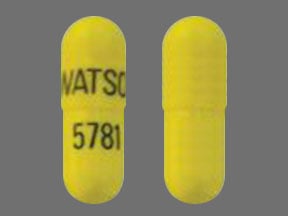
Nitrofurantoin Macrocrystal Coupons & Savings Card – Discount Prices from $8.32
Generic for: Macrodantin
My prescription
Edit
100MG, Nitrofurantoin Macrocrystal (14 Capsules)
Select pharmacy

CVS
$19.35
COUPON PRICE
Walmart
$8.32
COUPON PRICE
Walgreens
$12.70
COUPON PRICE
Albertsons
$13.77
COUPON PRICENitrofurantoin Macrocrystal savings card
Show this card to your pharmacist
Walmart
$8.32
BIN
ID
PCN
GRP
019876
LH2648C7A9
CHIPPO
LHX
Powered by
More prescriptions for urinary tract infection
More prescriptions for urinary tract infection
Nitrofurantoin Macrocrystal dosage forms
Dosage Quantity Price from Per unit 25MG 30 Capsules $31.58 $1.05 25MG 100 Capsules $70.58 $0.71 50MG 1 Capsule $2.76 $2.76 50MG 14 Capsules $6.07 $0.43 50MG 28 Capsules $9.64 $0.34 50MG 30 Capsules $10.15 $0.34 50MG 40 Capsules $12.71 $0.32 50MG 50 Capsules $15.26 $0.30 50MG 90 Capsules $29.31 $0.33 50MG 100 Capsules $30.90 $0.31
| Dosage | Quantity | Price from | Per unit |
|---|---|---|---|
| 25MG | 30 Capsules | $31.58 | $1.05 |
| 25MG | 100 Capsules | $70.58 | $0.71 |
| 50MG | 1 Capsule | $2.76 | $2.76 |
| 50MG | 14 Capsules | $6.07 | $0.43 |
| 50MG | 28 Capsules | $9.64 | $0.34 |
| 50MG | 30 Capsules | $10.15 | $0.34 |
| 50MG | 40 Capsules | $12.71 | $0.32 |
| 50MG | 50 Capsules | $15.26 | $0.30 |
| 50MG | 90 Capsules | $29.31 | $0.33 |
| 50MG | 100 Capsules | $30.90 | $0.31 |
| 100MG | 14 Capsules | $8.32 | $0.59 |
| 100MG | 1 Capsule | $2.92 | $2.92 |
| 100MG | 2 Capsules | $3.33 | $1.67 |
| 100MG | 4 Capsules | $4.16 | $1.04 |
| 100MG | 6 Capsules | $4.99 | $0.83 |
| 100MG | 8 Capsules | $5.83 | $0.73 |
| 100MG | 10 Capsules | $6.66 | $0.67 |
| 100MG | 12 Capsules | $7.49 | $0.62 |
| 100MG | 15 Capsules | $8.74 | $0.58 |
| 100MG | 16 Capsules | $9.15 | $0.57 |
| 100MG | 20 Capsules | $10.82 | $0.54 |
| 100MG | 21 Capsules | $11.23 | $0.54 |
| 100MG | 28 Capsules | $14.14 | $0.51 |
| 100MG | 30 Capsules | $14.97 | $0.50 |
| 100MG | 40 Capsules | $19.13 | $0.48 |
| 100MG | 50 Capsules | $22.05 | $0.44 |
| 100MG | 100 Capsules | $33.80 | $0.34 |
Nitrofurantoin Macrocrystal Warnings
This document outlines important safety information regarding the use of nitrofurantoin (Macrobid). Please read carefully and discuss any concerns with your healthcare provider.
Lung Damage: Prolonged use of nitrofurantoin, especially beyond six months, can occasionally lead to lung damage. Seek medical attention if you notice persistent coughing or difficulty in breathing.
Liver Damage: Rare but severe liver damage has been reported in some cases. Individuals with a history of liver issues are at greater risk. Be vigilant for symptoms such as unexplained stomach pain, nausea, vomiting, dark urine, light-colored stools, or jaundice, and contact your healthcare provider immediately.
Nerve Damage (Neuropathy): There is a risk of nerve damage, which may be permanent, particularly in those with kidney problems, anemia, low vitamin B levels, electrolyte imbalances, or diabetes. Report any numbness, tingling, or unusual sensations to your healthcare provider. Regular blood tests may be necessary to monitor your condition.
Hemolytic Anemia: This medication may cause the breakdown of red blood cells, particularly in individuals with a deficiency in glucose-6-phosphate dehydrogenase (G6PD), which is more common in certain ethnic groups. Notify your healthcare provider if you experience unusual weakness, dizziness, or fatigue.
Severe Diarrhea: Nitrofurantoin can disrupt gut bacteria, leading to diarrhea, including a serious type caused by Clostridioides difficile (C. diff). If you have watery or bloody stools, stomach cramps, or fever, consult your provider promptly. Practice good hygiene to prevent spreading C. diff.
Contraindications: Do not use nitrofurantoin if you have had liver damage or jaundice related to its use, severe kidney problems, are urinating less than usual, are a female at 38 to 42 weeks of pregnancy or during labor, or are administering it to children under one month of age. Always consult your healthcare provider if any of these conditions apply to you.
In case of overdose, seek emergency medical assistance immediately.
Nitrofurantoin Macrocrystal Side Effects
Common side effects:
- nausea
- headache
- gas
- vomiting
- diarrhea
- upset stomach
- stomach pain
- dizziness
- drowsiness
- itchiness
- fever
- chills
- "pins and needles" sensation in the arms and legs
Less common but important to monitor:
- severe diarrhea
- trouble breathing or a new or worsening cough
- liver problems (stomach bloating, severe stomach pain with vomiting, yellowing of the skin or eyes, dark urine)
- oral thrush or a new yeast infection (white patches in the mouth, changes in vaginal discharge)
Serious side effects:
- severe allergic reactions (hives, muscle aches, chills, swelling of the lips or tongue, difficulty breathing)
- serious lung problems
- potentially fatal liver disease
- blood or nerve issues
- severe intestinal condition caused by C. difficile bacteria
- persistent cough
- chest pain
- shortness of breath
- joint or muscle pain
- bluish skin
- easy bruising or bleeding
- mental changes
- vision changes
- severe headaches
- persistent nausea or vomiting
- unusual tiredness
- numbness or tingling in the limbs
- muscle weakness
- persistent diarrhea with abdominal pain
- serious allergic reaction (rash, severe dizziness, trouble breathing)
Nitrofurantoin Macrocrystal Interactions
Interactions with moderate risk that may require dose adjustment, closer monitoring, or timing changes:
- Cholera Vaccine, Live
- Fluconazole
